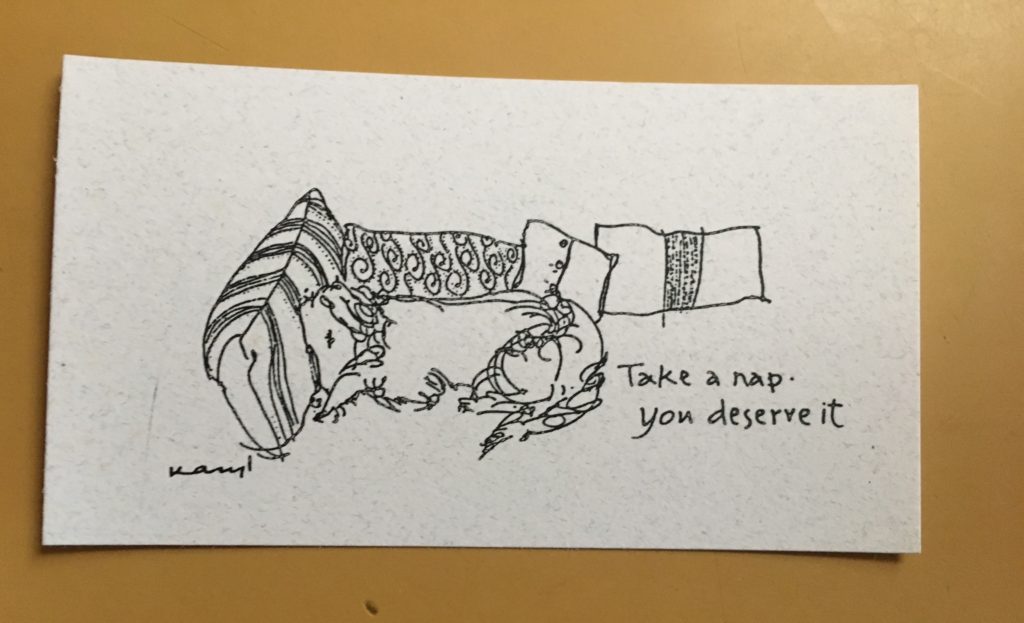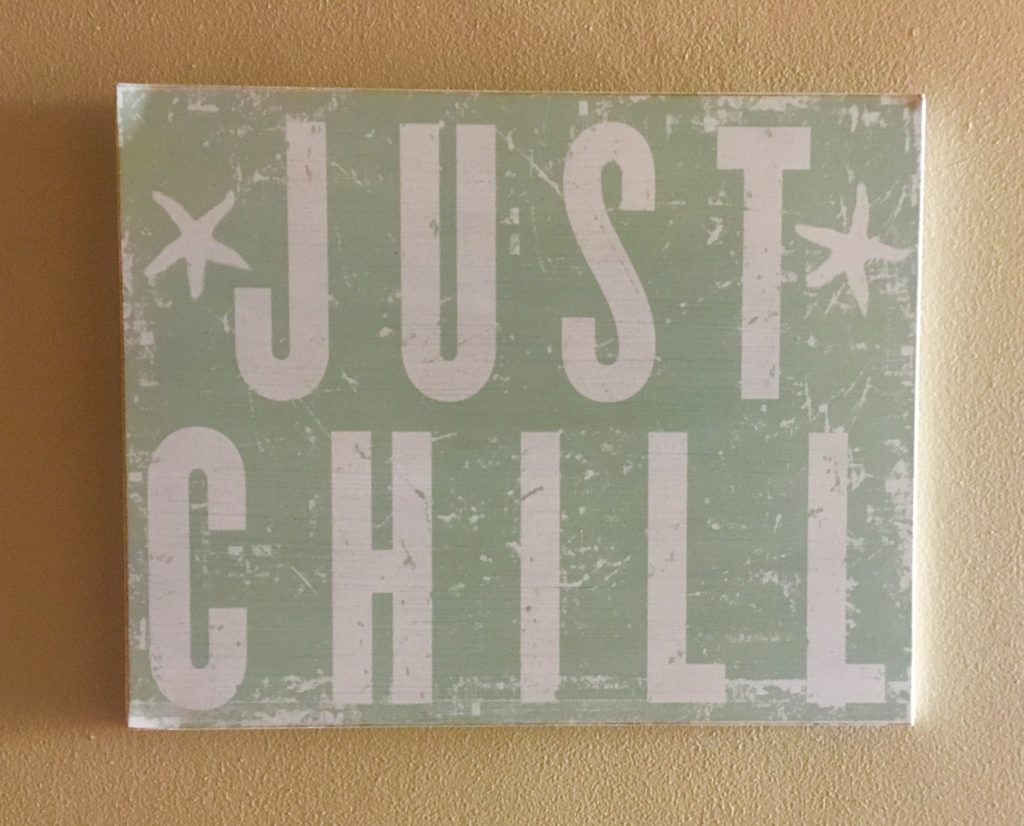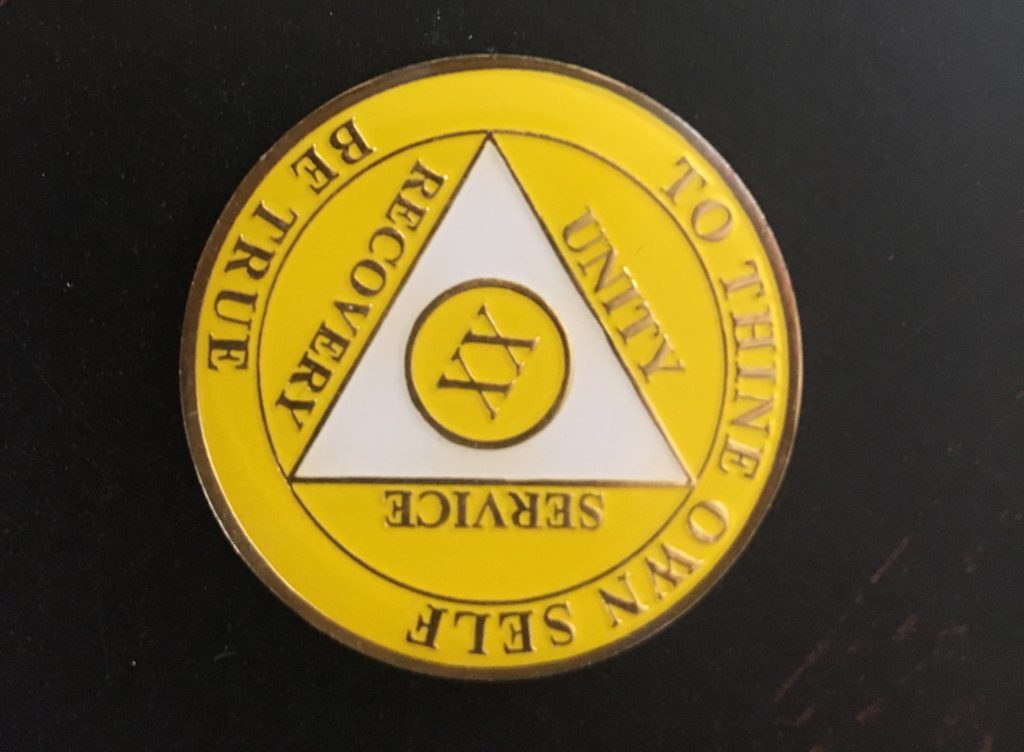“Never on a Monday,” says the text from a childhood buddy, in response to my question about her work schedule. “Mondays are sacred.”
And for a while, they were. Even 3,000 miles apart, we experienced Sacred Mondays together, texting each other photos of coffee mugs and couches. Having a day of rest was as mandatory as the weekends we filled with family obligations.
Yet, as it has since I quit my career five years ago, life changed radically this summer. Having proved my ability to somewhat successfully meet the endless demands of elderly parents, the Universe has now designated me caregiver to an injured husband, the most difficult job I’ve had so far.
Every day is Groundhog Day, my husband reminds me from his perch on the recliner; it’s true for both of us. And somewhere in the daily drudgery of living through the chronic stabbing pain of an injured hip, tending to medical needs and a household filled with pets and chores, my Sacred Mondays vanished.
I found myself missing that soothing relief of a day in which I allowed myself to do nothing. Never fully able to embrace self-care—even the term is as cringe-worthy for me as self-love—Sacred Mondays were at least a stab at putting myself first. Yet spousal caregiving is a far more emotionally draining experience than I ever imagined. Something had to change.
One Sunday not too long ago, I had coffee with a friend whose mother is now in hospice care, after an agonizingly slow trudge through the twisted maze of Alzheimer’s. “I disconnect on Sundays,” said my friend. “No workouts, no errands, no housework, no parents. A whole day off from my shitshow of a life.”
In my not-sober past, Sundays were spent nursing profound hangovers with brunch-filled mimosas and afternoons of beachfront reggae music. In sobriety, I find peace at Sunday morning 12-step meetings. But for the past three years, I’ve dreaded Sundays: taking my mother to church in an effort to maintain the routine so necessary for a person living in Alzheimer’s World. And when my new caregiving responsibilities took priority, she never noticed we’d stopped going to church, just one more of the merciful yet bittersweet paradoxes of dementia.

Now, Sunday is the day I look forward to all week; the portrait my friend/dementia mentor painted has come to life. Sacred Sundays give me freedom from my shitshow of a life. Write. Read. Nap. Watch football. Or none of the above.
And serenity returns to our household, if only for a day.



